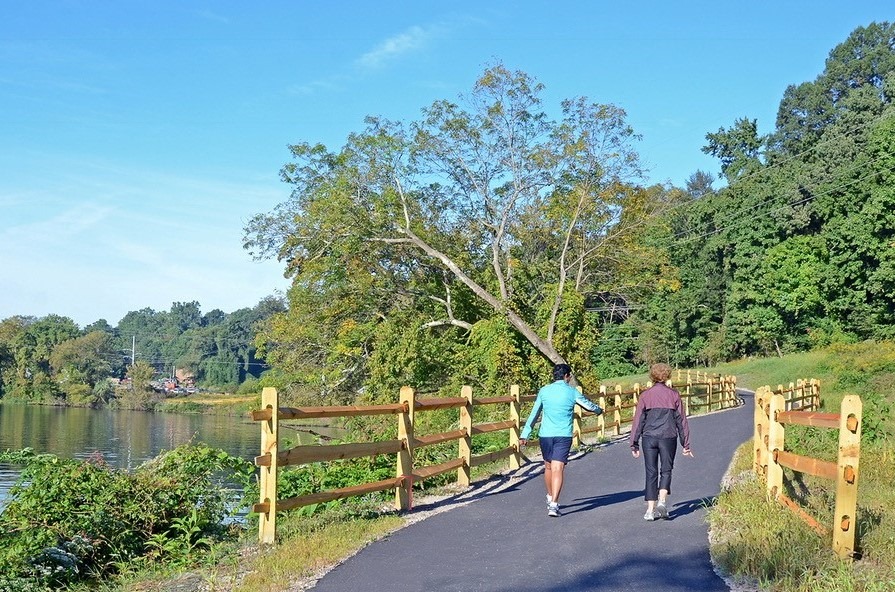By Zach Armstrong, The Prince George Journal — The Friends of the Lower Appomattox River will consider climate change impacts into the development of the Appomattox River Trail blueway and greenway relating to the ecosystem, park and trail infrastructure as well as the park and trail users.
“The climate change adaptation framework isn’t going to change our work, it’s really to have a new lense on our work to make sure we’re putting the right facilities in the right place and that we are doing sustainable development,” said Regional Trail Program Director at FOLAR Heather Barrar. “It makes sure we’re taking a long term view to make sure we’re doing the right thing,” The management goals for the trail’s development under the climate response framework are to provide a recreation and transportation network for all ages and abilities, provide a natural and rugged hiking recreation experience along the main trail and park site, improve access and user experience for paddlecraft, maintain a healthy and vibrant forested riparian buffer along the river, manage stormwater outflows from the watershed to minimize impacts on the condition of the buffer and shoreline trail, maintain and improve the condition of the shoreline of the river, control invasive species found in the buffer and to provide access to the trail through trailhead parking areas and park sites that provide amenities.
The Appomattox River Trail is developing on a 20-mile stretch along the Appomattox River from the Brasfield Dam at Lake Chesdin. The project includes the Counties of Chesterfield, Dinwiddie and Prince George and the Cities of Colonial Heights, Hopewell and Petersburg.
Impacts to the trail from climate change include increased temperature and precipitation and more frequent extreme weather events which will amplify existing stressors to the forest ecosystem such as invasive species and insect pests and will increase river temperature, impacting fish communities.
“In our region, we definitely could have sea level rise that would impact the river level so we want to make sure we place the Trail out of future rising areas,” said Barrar. “I think our community has seen a little bit of flooding and heat waves which doesn’t just impact the Trail but also the Trail’s users … when you think about people using the Trail you should think about how to keep them safe.”
Development of the Trail already makes a positive impact on the environment by taking cars off the road giving people some alternative transportation. Tactics to address climate change in future development include building the shared use path and bridges with materials to accommodate increased flooding, constructing shelters to provide shade from heat, and develop park sites with Low Impact Design, and retrofit existing stormwater outfalls to accommodate increased flows. FOLAR is also working with the Pocahontas chapter of Virginia Master Naturalist group to look at invasive species removal to give native plants a better chance of staying healthy and responding to change. They are also partnering with the Department of Forestry to be more proactive in future planning efforts.
For the original article on The Prince George Journal website, please visit: Development of Appomattox River Trail takes climate change into account | News | theprincegeorgejournal.com







